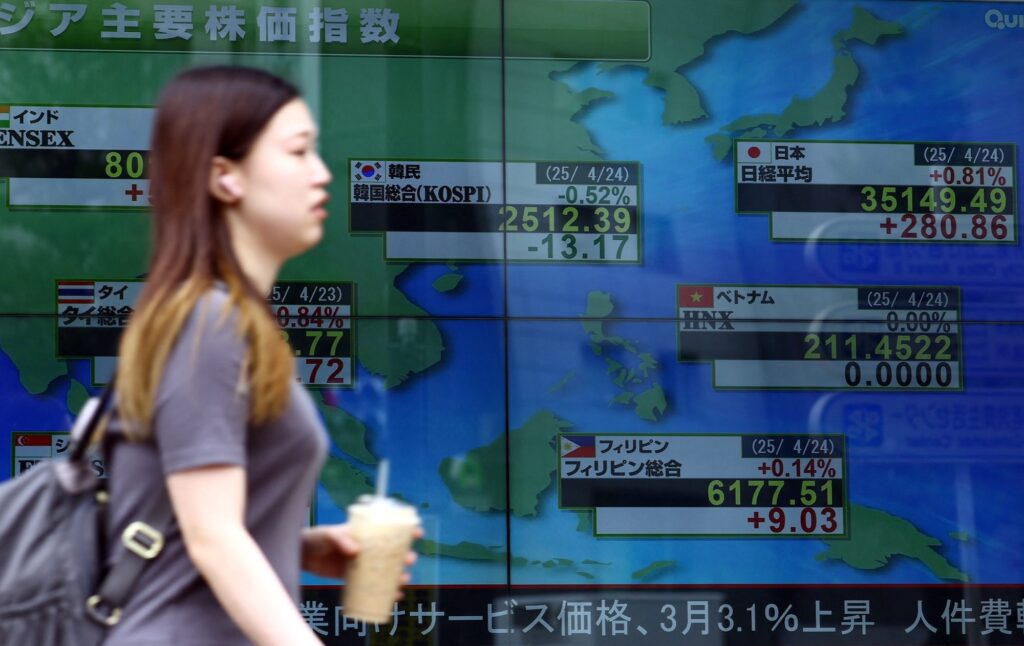IPO bubbles and busts have been a recurring theme in the GCC stock markets over the past two decades – even before the latest nastiness in the region.
Domestic liquidity metrics, bank lending and risk aversion respond dramatically to a deterioration in macroeconomic fundamentals.
The GCC equity markets are mercurial, even by the standards of emerging markets. The region’s volatility indices can trade above 50 or three times the S&P 500’s current levels, even in regular times.
This means that GCC equity markets are among the riskiest in the world, as there are no real index or single stock derivatives products listed to help GCC investors calibrate their risk management strategies.
Investing in hyper-volatile stock markets without access to listed index futures and options to hedge risk is like driving a Ferrari at full speed without a seatbelt. It may seem thrilling when the road is smooth, but it becomes downright suicidal when things go wrong – as they often do in emerging market stocks.
The Saudi IPO bubble is entering the early stages of a prolonged unravelling. In a marked pivot, Saudi Arabia’s energy minister has moved from defending elevated oil prices to deliberately driving them lower – a strategy aimed at punishing Opec+ quota violators like Iraq and Kazakhstan.
But the fallout risks collateral damage at home, where buoyant equity valuations have been propped up by petrodollar confidence and speculative retail enthusiasm.
These are all signs of an IPO bubble that has peaked and is in the early stages of a protracted downturn
The prospects of double-digit budget deficits in 2025 and 2026, as well as funding cuts in even the most prestigious Vision 2030 giga-projects, such as the futuristic Neom, mean that local liquidity and risk appetite will be on a downtrend for the next two years.
The Federal Reserve is also reluctant to cut its US dollar overnight borrowing rate as it fears Trump’s tariffs will cause inflation rates to rise. This means the US central bank will only cut borrowing rates after its September meeting, if at all.
The logic of the GCC currency peg means that regional investors cannot realistically hope for the Saudi central bank to pivot to easy money any time soon.
Saudi borrowing in the global dollar bond and sukuk market in 2024 and 2025 has been higher than that of China – a nation with more than 35 times the kingdom’s population.
This outsized reliance on global bond and sukuk markets raises the real risk of crowding out private sector borrowing, pushing up real money market rates.
In turn, tighter liquidity in local lending markets creates a punishing environment for risk assets – particularly IPOs. The kingdom’s equity issuance boom, which peaked in late May, is already showing signs of fatigue.
While the Saudi IPO market saw 10 deals in May that raised $1.3 billion, the new issue market has lost its white-hot momentum of the past nine months.
Secondary market trading of Nomu IPOs has been dismal and several bellwether issues from April are trading well below their IPO offer prices.
The Nomu Capped Index is down a painful 17 percent in 2025 and Saudi equities were among the world’s worst-performing equity markets in May as foreign funds exited the Tadawul Index due to low oil prices and the deterioration in the kingdom’s fiscal metrics.
It does not help that Al-Khaldi Logistics and Dome International Investment cancelled its scheduled IPOs on Nomu in the first week of June without giving any reason.
United Carton Industries, a much-hyped IPO, is now down 33 percent a month after its listing on the main exchange, marking yet another blow to investor sentiment.
These are all the classic signs of an IPO bubble that has peaked and is now in the early stages of a protracted downturn as leveraged buyers are forced to sell in a falling market.
Emerging market fund managers in London, Singapore and Hong Kong tell me that they are eager to reduce their exposure to US dollars in favour of rising Asian currencies.
They thus have no interest in accumulating Saudi equities even though the Tadawul All Shares Index (Tasi) is down 12 percent in 2025 at a time when global emerging markets are in a definite bull run.
Therefore the Saudi stock market is largely dependent on local investor flows and risk appetite, which has turned bearish following the events of the past two weeks. This fact alone amplifies a downside risk in Saudi equities.
It is simply not possible for the IPO market to recover its lost momentum while the Tadawul All Shares Index is trading in a negative downtrend with an exodus of foreign institutional capital flows.
Matein Khalid is an investor in global financial markets and board adviser to leading family offices in the UAE and Saudi Arabia



